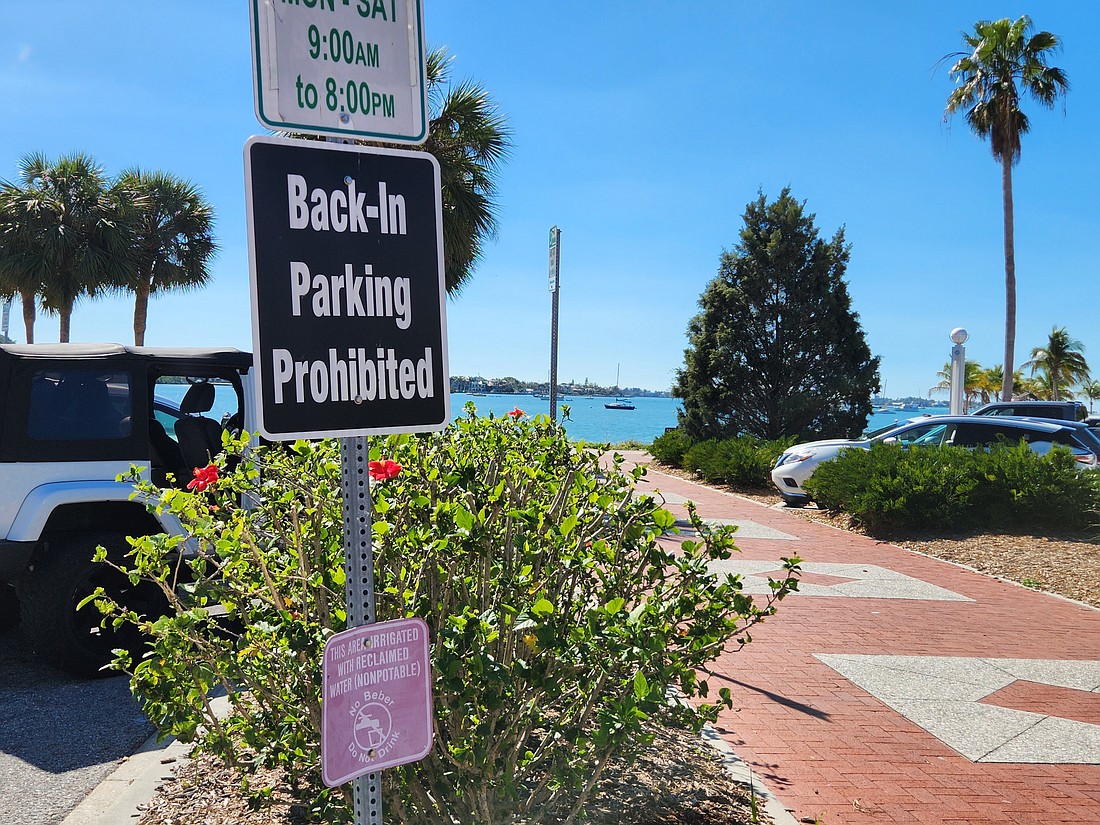- May 8, 2025
-
-
Loading

Loading

Drivers who prefer to back into parking spaces may soon have permission to go rear wheels first in city-owned and controlled surface lots and decks. At its Feb. 6 meeting, the City Commission approved amending an ordinance to allow back-in parking in individual facilities at City Manager Marlon Brown’s discretion.
The policy doesn’t apply across the board. Brown will determine which facilities will permit back-in parking on a case-by-case basis. Currently, signs prohibiting back-in parking are posted in surface lots such as Bayfront Park and in parking decks in downtown and at St. Armands Circle.
Back-in parking can be a polarizing issue among drivers, including commissioners who were divided regarding their parking preference. As for the support of removing the citywide ban, they were in unanimous support.
“I’m going to vote yes but I hate backing in,” said Vice Mayor Liz Alpert. “I know a lot of people like it.”
“I'll vote yes. I love backing in,” said Mayor Kyle Battie.
The amendment still prohibits back-in parking in angled spaces, except where otherwise posted. Backing in is required, for example, along Gulfstream Avenue.
Back-in parking had been prohibited by city ordinance where posted in most city parking facilities. That was primarily because the city’s Parking Division scans license plates for expired registrations and stolen vehicles. With Florida requiring only a rear license plate, it can be a challenge to efficiently run plates on vehicles backed into spaces, particularly in parking garages.
Commissioner Debbie Trice asked if there was any pushback from the Parking Division about the plate-reading obstacles.
“As you may recall the parking manager the time (Mark) Lyons came before you and said that he will support this and that there are no other issues other than do they have to get out of their enforcement vehicle to read the tag,” Brown said.
No drivers will be required to back into a parking space. In lots where Brown deems it permissible, it will be optional.
“It simply allows it, and it would not apply to the angled spaces,” Fournier said. “It wouldn't apply on the street, just in city-owned lots, not private lots, and in city-controlled parking structures or portions thereof.”